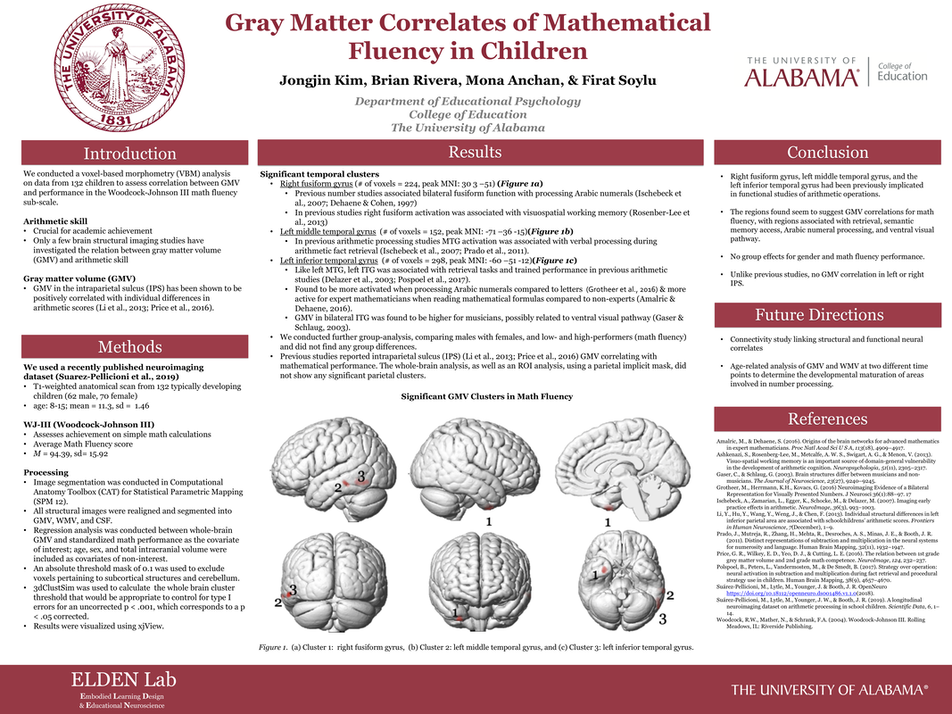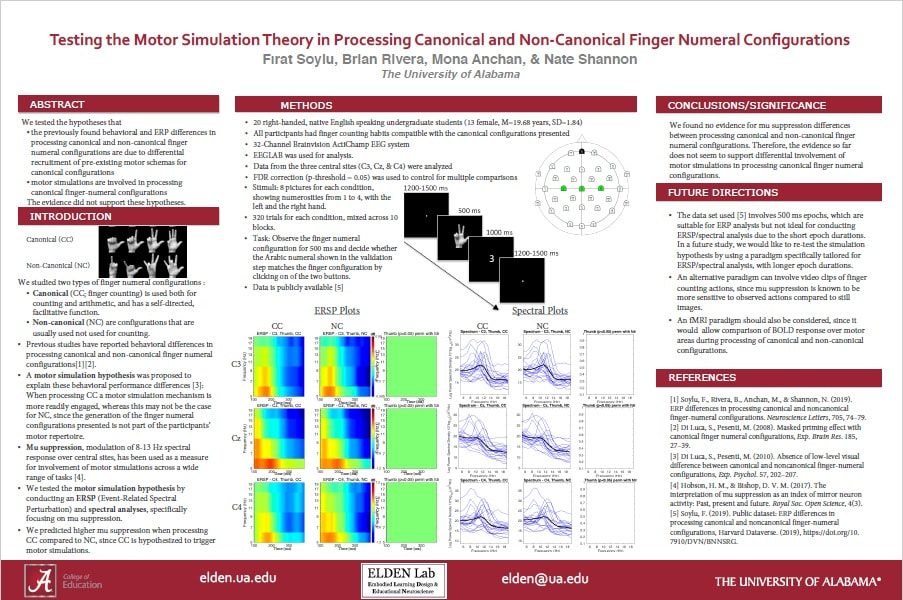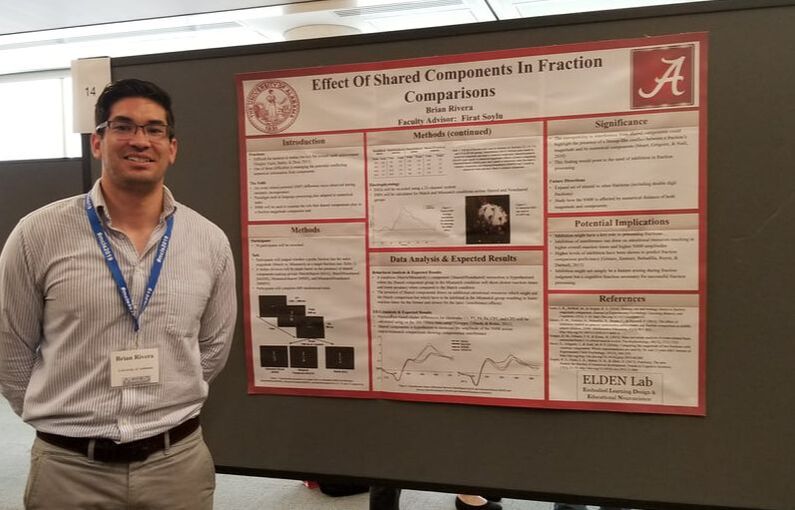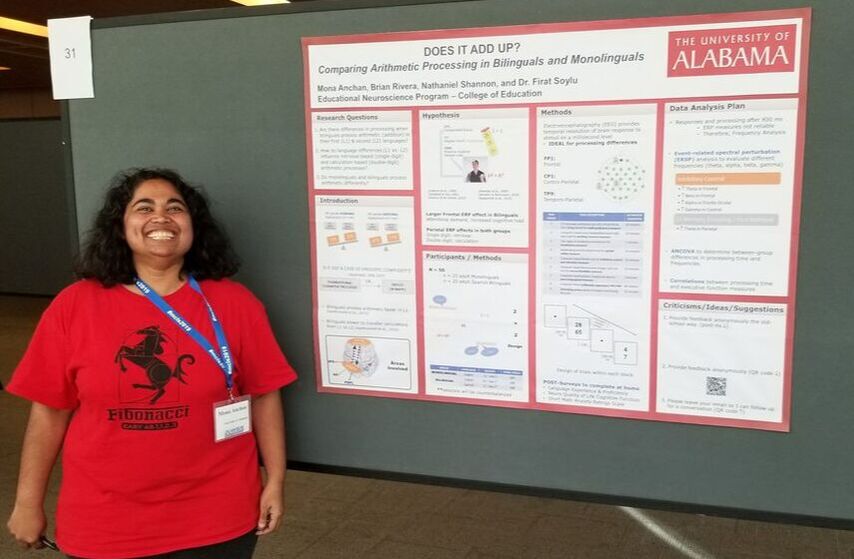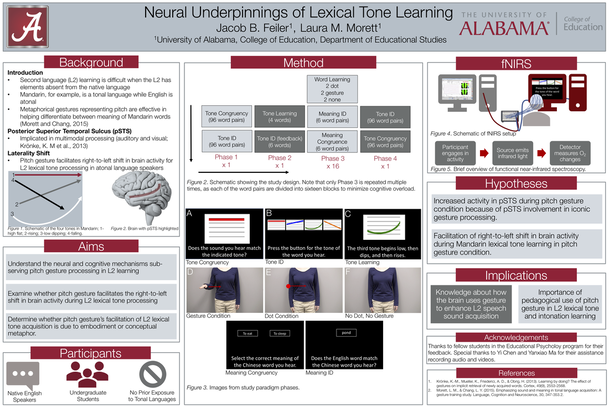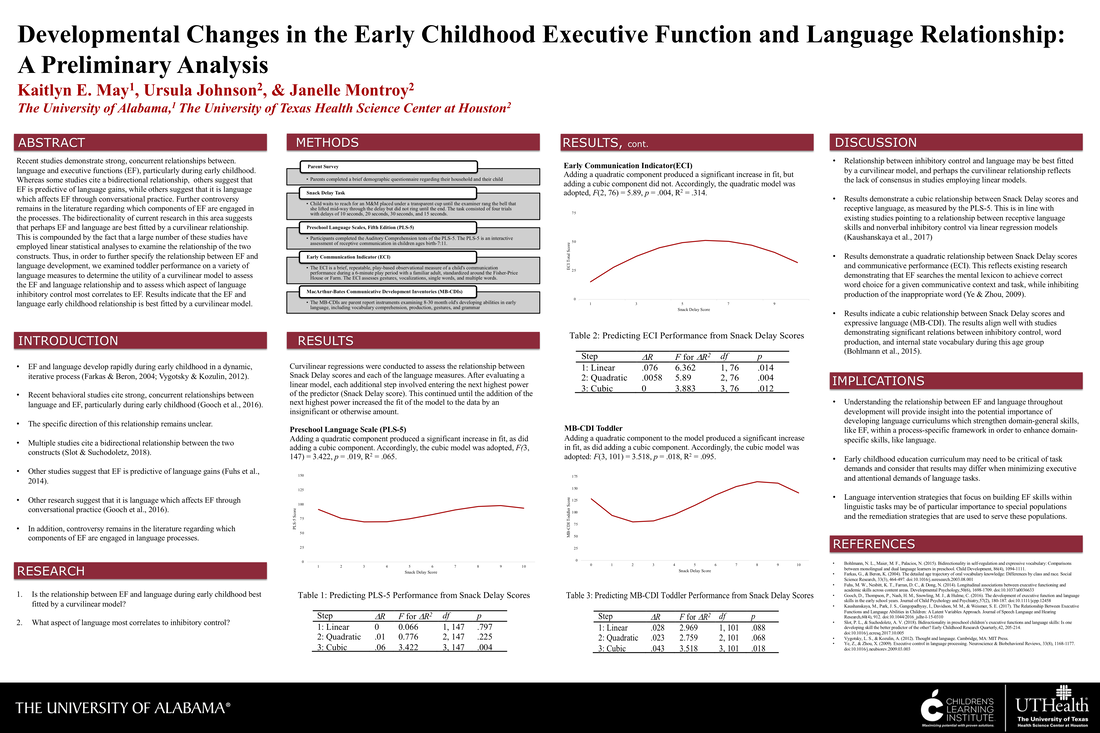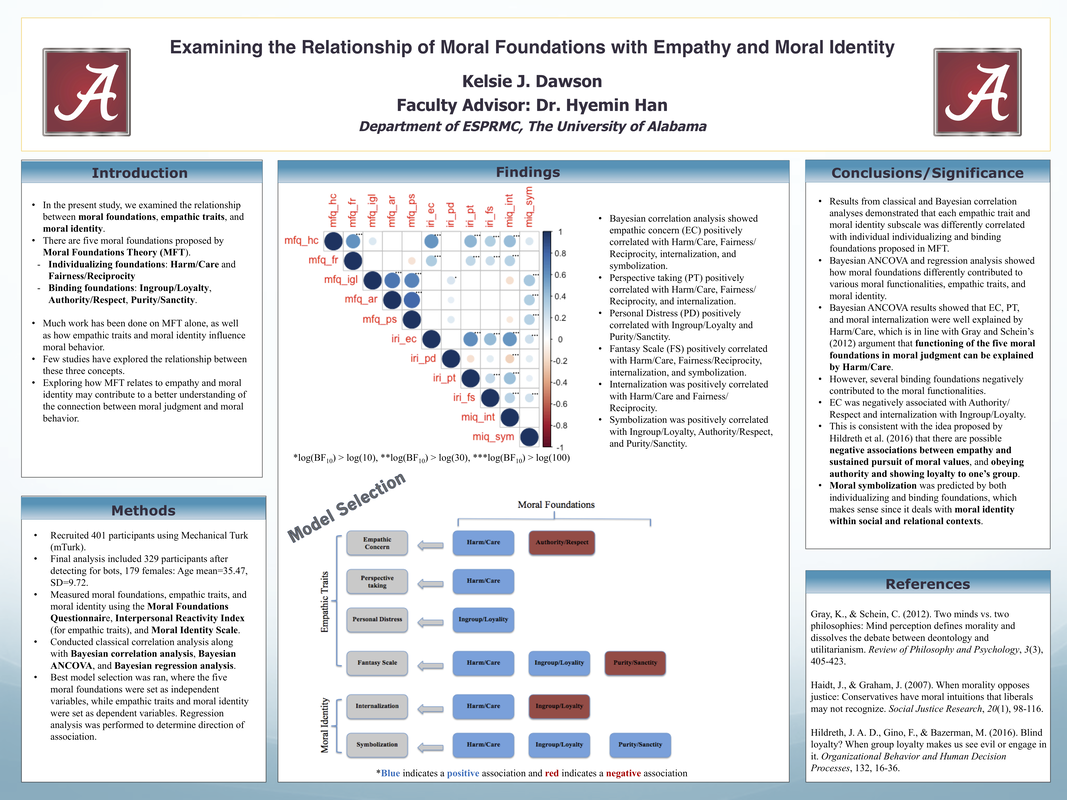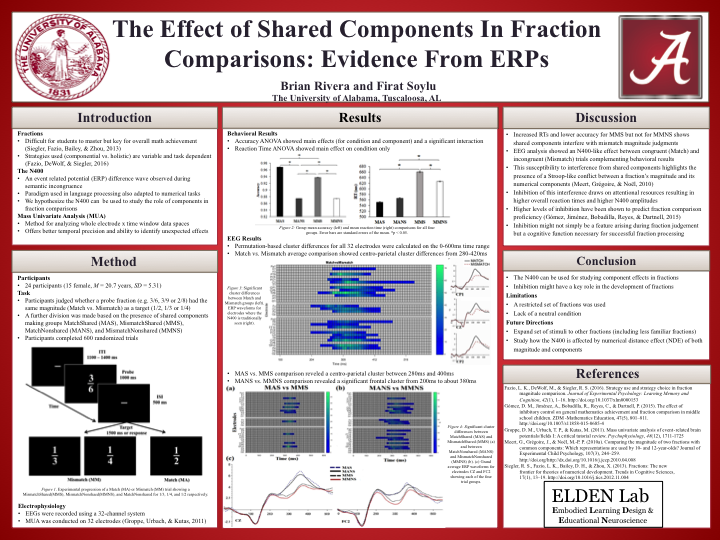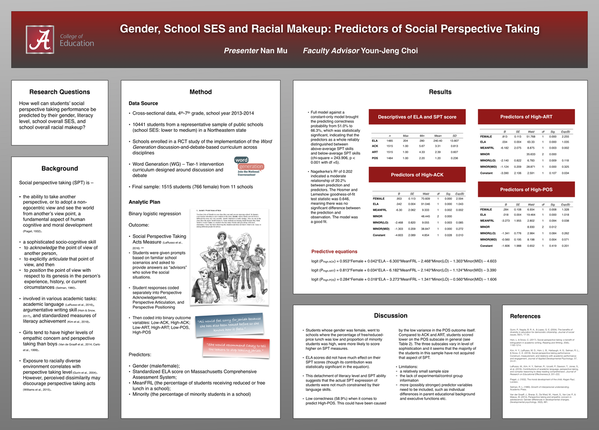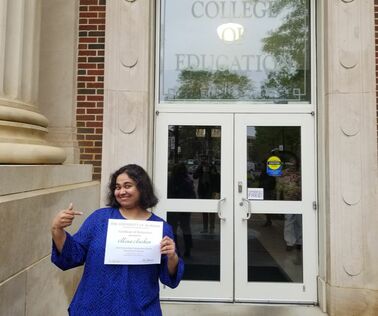 The Educational Psychology Program at the University of Alabama invites applications for a tenure-track assistant professor position to expand its Educational Neuroscience Initiative. We seek a junior scientist with an interdisciplinary background whose research focuses on understanding neural mechanisms of learning and cognition, and educational implications of neuroscience research in one or more relevant domains (e.g., math learning & numerical cognition, science education, reading & literacy, motivation & affect, human development, learning technologies, cognitive and behavioral disorders). The ideal candidate can integrate developmental, neural, evolutionary and cognitive approaches to construct multi-level theories of learning and cognition, and can conduct experimental and learning design studies to validate these theories. Please see the job ad for more information -> https://facultyjobs.ua.edu/postings/45755 Dr. Ian McDonough will give a Freesurfer workshop for students and faculty on Friday, Sept 6, 10am-11am, in Tom Barnes Room 1033. Freesurfer (https://surfer.nmr.mgh.harvard.edu/) is a free and open source software used for conducting surface-based structural MRI analysis. This workshop would be of interest, if you are interested in conducting research on the relation between structural brain features (e.g., gray/white matter volume) and behavioral indicators.
Educational Psych faculty and students came together to kick off the new academic year over a potluck lunch. The lunch followed the first meeting of the Ed Psych Brown Bag. This is the annual gathering organized by Ed Psych faculty and students to mark the beginning of the year. Thanks to everyone for the delicious food! We wish everyone a successful academic year. Dr. Firat Soylu and Dr. Laura Morett along with graduate students Jonjing Kim, Mona Anchan, and Brian Rivera attended the 8th Annual Alabama Advanced Imaging Consortium Retreat (AAIC) at Cheaha State Park in Alabama, August 2-3. The group joined faculty and students from UAB, Auburn, and the University of South Alabama. You can learn more about the Alabama Advanced Imaging Consortium here. Below you can find pictures of the cohort, the Bald Rock Lodge, and Cheaha State Park. Dr. Morett gave a talk entitled N400 magnitude and coherence reflect temporal integration of beat gesture and pitch accent during language processing. Graduate students Jonjing Kim, Mona Anchan, and Brian Rivera presented a poster entitled Gray Matter Correlates of Mathematical Fluency in Children showcasing a voxel-based morphometry(VBM) analysis on structural data from children assessing correlations between gray matter volume and a measure of math fluency. You can see the poster below and download a PDF on the link.
ELDEN Lab PI Firat Soylu and graduate students Brian Rivera and Mona Anchan presented at the 2019 meeting of the Mathematical Cognition and Learning Society (MCLS) hosted at Carleton University in Ottawa, Canada from June 16-18. Dr. Soylu presented a poster titled Testing the Motor Simulation Theory in Processing Canonical and Non-Canonical Finger Numeral Configurations summarizing an analysis of finger processing data. Both Brian and Mona presented pre-registered posters. You can find links to PDF copies of the posters below.
Five students in the Educational Neuroscience Initiative receive recognition at graduate symposium4/29/2019
Five Educational Psychology doctoral students in the Educational Neuroscience Initiate received awards for their research poster presentations. Jake Feiler, Kaitlyn May, Kelsie Dawson, Brian Rivera, and Nan Mu were recognized for their poster presentations during the ESPRMC Graduate Research Symposium. Congratulations to all of them! You can find students' specific awards as well as copies of their posters below.
Drs. Evie Malaia (Communicative Disorders, A&S) and Firat Soylu (Educational Psychology, College of Ed) received funding from the Alabama Life Research Institute (ALRI) Pilot Project Program, for a project entitled “Brain pathways for perception-to-cognition in ASD: Reconciling divergent evidence from computational and emotional behavior”.
The project will inform a NIH R01 application, responding to a program announcement for research on autism spectrum disorders. Autism Spectrum Disorder (ASD) is a neurodevelopmental disorder that affects sensorimotor, cognitive, and socio-communicative abilities throughout the lifespan. Social deficits observed in ASD are linked to impairments in brain systems that support theory of mind: one’s ability to model mental states of other individuals based on observed physical features and behaviors, which requires recruitment of sensorimotor simulation systems. While sensorimotor simulations are hypothesized to underlie all components of higher cognition, these components are not affected to equal measure in ASD. For example, while ability to recognize and interpret emotional states is severely impaired in those on autism spectrum, number processing, which to some extent uses overlapping sensorimotor simulation systems, is often enhanced (the “Rainman phenomenon”). Drs. Malaia and Soylu will investigate neurobiological bases of sensorimotor simulations in emotion recognition vs. number processing in individuals with ASD, and their neurotypical peers. ASD is increasingly understood to be based on atypical signal transfer among brain networks. The study will form a foundation for re-framing the “theory of mind” hypothesis for autism in terms of domain-specific sensorimotor resonance. It will also provide pilot hypothesis testing for a Big Data investigation of sensorimotor resonance in specific domains of higher cognition in ASD and typically developing individuals using a national database of functional neuroimaging. We are happy to announce that Dr. Macarena Suárez Pellicioni will be joining the faculty in the Educational Psychology Program in August, 2019! Dr. Suárez is currently a postdoctoral fellow in the Brain Development Lab at Vanderbilt University. Her research focuses on numerical cognition and mathematical development. She uses behavioral, fMRI, and EEG/ERP methods in her research.
Mona Anchan, second year PhD student in the Ed Psych / Ed Neuro Concentration & the ELDEN Lab, received the Educational Psychology Program Outstanding Graduate Student Award. Mona was presented with the award during the College of Education's Honors Day at the Woods-McDonald Auditorium in Graves Hall. Congratulations to Mona!
Dr. Hyemin Han received the 2018 Kuhmerker Dissertation Award from the Association For Moral Education. The Association for Moral Education gives an annual award for an outstanding doctoral dissertation. The Kuhmerker Dissertation Award is intended to give recognition and commendation to a dissertation addressing moral cognition, moral development, moral functioning, and/or moral education.
More about the award can be found here. |
||||||||||||||||||||||||||||||||||||||||||||||||||||||||||


